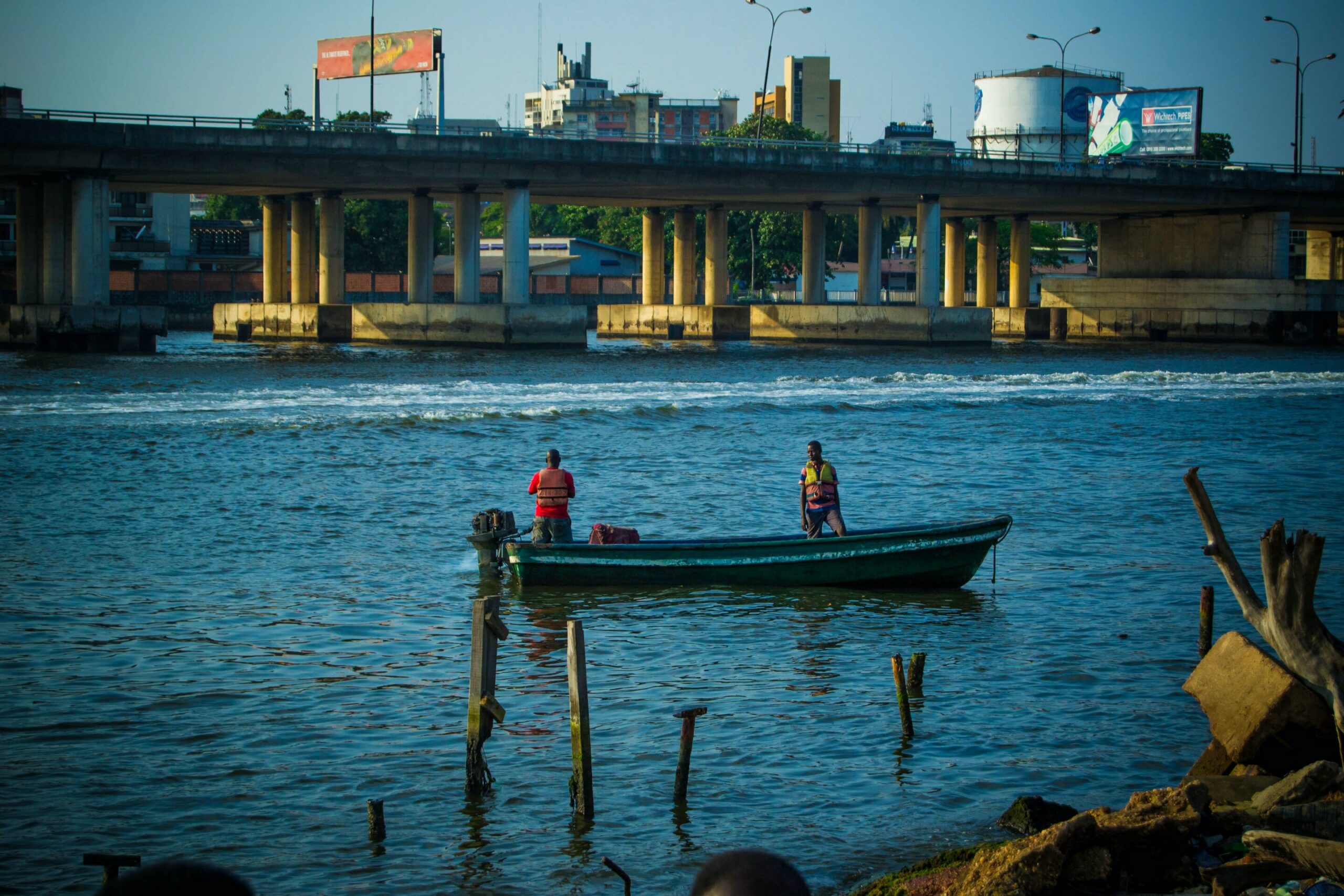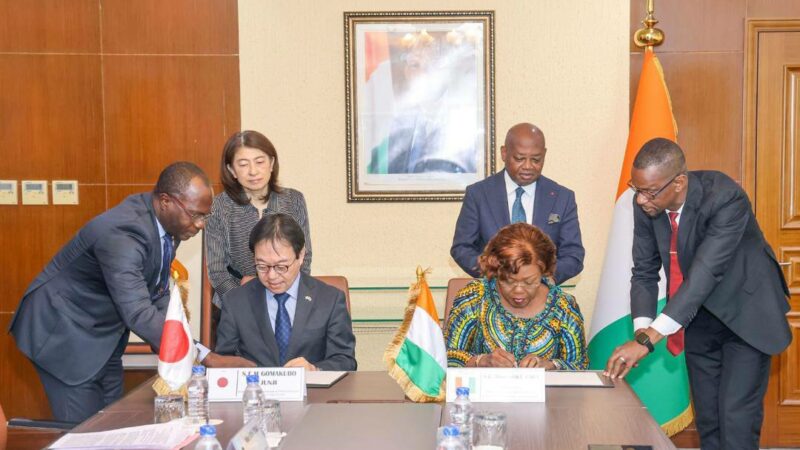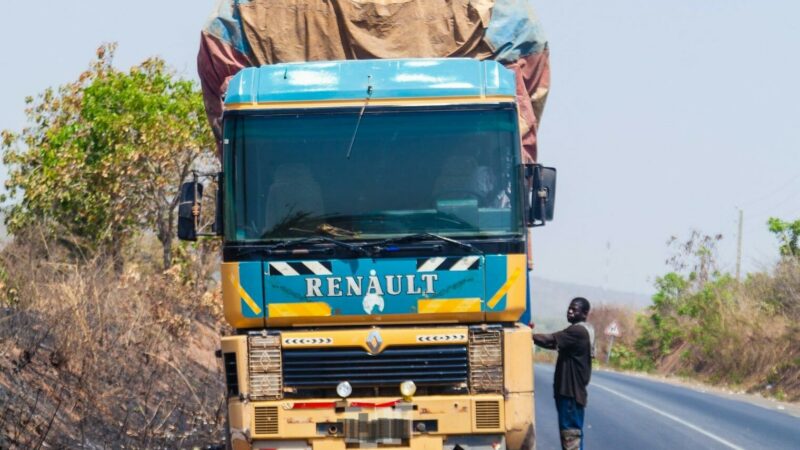Nigeria: 75% of Targets Achieved in Two Years by the Ministry of Marine and Blue Economy

Oyetola also said that the transition to a sustainable blue economy model requires innovation, investment, policy coherence, and human capital development
The Minister for Marine and Blue Economy, Adegboyega Oyetola, on Thursday, said that the ministry has recorded 75 per cent performance in two years since its inception.
He said the marine and blue economy ministry received the encomium through an evaluation conducted by the Office of the Special Adviser to the President on Policy and Coordination, through the Central Results Delivery Coordination Unit (CRDCU), which confirmed that the ministry achieved a 75% performance score at the end of 2024, despite various institutional and operational challenges.
He made this known at the Second Quarter Citizen/Stakeholders Engagement Forum convened to deliberate on the effective implementation of the National Policy on Marine and Blue Economy held at Eko Hotels and Suites on Thursday.
The theme of the Forum is ‘Strengthening Collaboration For Effective Implementation Of the National Policy On Marine and Blue Economy’.
He explained that the engagement is a working forum designed to develop a strategic roadmap for implementation.
“We are here to design actionable frameworks, set implementation priorities, and assign clear institutional responsibilities. In doing so, we must focus on improving coordination, ensuring accountability, and building capacity at all levels.
He noted that the approval of the National Policy on Marine and Blue Economy by the Federal Executive Council marks a critical turning point providing a comprehensive framework to unlock value across the marine ecosystems.
“This policy encompasses port infrastructure, maritime security, aquaculture, ocean governance, marine biotechnology, renewable energy, coastal tourism, and climate resilience,” he stated.
He opined that the rollout of the policy would be cross-sectoral, collaborative, and data-driven.
On deliverables on tasks given, Oyetola commended the efforts of the delivery task teams across the Marine and blue economy ministry and its agencies and urged them to remain focused and continue to pursue excellence in the discharge of their responsibilities.
Oyetola said the Marine and blue economy ministry is prioritising the modernisation of port infrastructure.
“The Federal Government has approved the contracts for the reconstruction of the Apapa and Tin Can Ports, under the Western Port Rehabilitation Programme. Procurement is ongoing for the Eastern Ports.
“These upgrades are complemented by the deployment of digital solutions, including the Port Community System, the E-Call-Up System, and a unified One-Stop-Shop for port clearance. These interventions are designed to reduce delays, boost investor confidence, and reposition Nigeria as a regional maritime hub,” he asserted.
He averred that the ministry is also working to strengthen indigenous shipping capacity through a public-private partnership model to revive a national carrier.
In addition, Oyetola said that the Nigerian Maritime Administration and Safety Agency (NIMASA) has commenced preparatory activities for the disbursement of the Cabotage Vessel Financing Fund with the process being carefully structured to ensure transparency and regulatory compliance to expand opportunities for Nigerian shipping operators.
On revenue and service delivery, the minister said that through digitisation, the ministry has recorded consistent year-on-year growth across its agencies to improve operational efficiency, close leakages, and attract private capital into the sector.
Regionally, the minister asserted that Nigeria is championing the operationalisation of the Regional Maritime Development Bank under the Maritime Organisation of West and Central Africa (MOWCA) to provide long-term financing for maritime infrastructure, thereby accelerating regional integration and supporting cross-border trade.
He highlighted that the ministry, through the National Inland Waterways Authority (NIWA), has introduced the Inland Waterways Transportation Regulation, 2023, and launched a nationwide water safety campaign, distributed over 42,000 safety jackets, deployed ferries, patrol boats, and trained water marshals with the efforts already yielding results in reducing boat mishaps across the country and restoring confidence in water transport as a safe and viable mode of movement.
Oyetola also said that the transition to a sustainable blue economy model requires innovation, investment, policy coherence, and human capital development.
“This is why we are placing strong emphasis on capacity building, research, and the promotion of local content in every segment of the value chain,” he maintained.
He reiterated the ministry’s commitment to build the necessary institutional, legal, and international linkages to enable Nigeria’s maritime sector to contribute robustly to national development.





